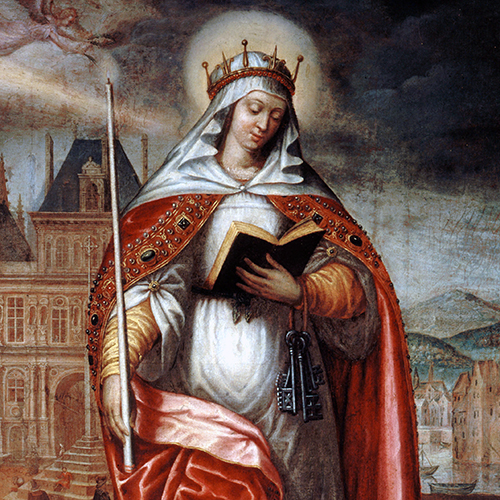
Feast day: January 3
Saint Genevieve was born around the year 422 in a village near Paris. When she was around seven years old, Saint Germain came to her village to preach against the heresy of Pelagius. While Genevieve was listening to his preaching, he singled her out amid the crowd and predicted her future sanctity. As part of her desire to live in a way that was pleasing to God, she became a consecrated virgin.
Genevieve lived in Paris during the time that Attila the Hun was ransacking most of Western Europe. When news broke out in the city that Attila was preparing to attack Paris, Genevieve convinced the people to stay in the city instead of evacuating and to escape the attack through fasting and prayer. The Parisians did as Genevieve suggested, and the Huns suddenly veered off course, sparing the city.
Genevieve lived a life of great simplicity and constantly prayed, helped the poor, and fasted. In fact, legend has it that she ate only two small meals of barley, bread, and beans a week. The Pantheon in Paris, a burial place for famous French citizens, was originally built as a church to honor Saint Genevieve. Although her relics were burned during the French Revolution, there is a shrine in her honor at the Church of Saint Etienne du Mont.
In this painting, Saint Genevieve prays in front of the Hotel de Ville (the City Hall) in Paris; the church to the right is the Cathedral of Notre Dame; at bottom right, the Huns are fleeing the city of Paris.
(Image in public domain-100)